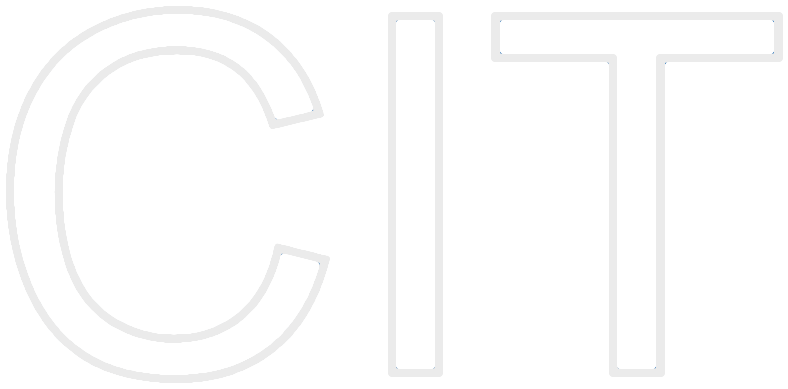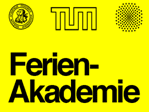iPraktikum
- iPraktikum 2022
- iPraktikum 2021/2022
- iPraktikum 2021
- iPraktikum 2020/2021
- iPraktikum 2020
- iPraktikum 2019/2020
- iPraktikum 2019
- iPraktikum 2018/2019
- iPraktikum 2018
- iPraktikum 2017/2018
- iPraktikum 2017
- iPraktikum 2016/2017
- iPraktikum 2016
- iPraktikum 2015/2016
- iOS Praktikum 2015
- iOS Praktikum 2014/2015
- iOS Praktikum 2014
- iOS Praktikum 2013
- iOS Praktikum 2012
- iOS Praktikum 2011
- iOS Praktikum 2010
- iOS Praktikum 2009
- iOS Praktikum 2008
This practical course is centered around innovation. It covers mobile applications for smart devices, ranging from standalone applications, embedded systems including hardware and sensors to the design of modern interfaces for complex business applications. Students learn and apply software engineering and usability engineering techniques. This includes object oriented modeling and system design as well as the realization of graphical user interfaces, usability testing, continuous integration and continuous delivery. Real industrial partners provide problem statements as clients. 8-12 companies participate in the iPraktikum every semester, each with a different problem statement and its own team. 60-100 students regularly participate and deliver these applications using agile techniques and communicating continuously to their clients.
iPraktikum 2022Development for iOS with industry partners This semester's projects are in cooperation with B/S/H, Eisenführ Speiser, iABG, MRI, .msg, Netlight, Quartett Mobile, SAP, Zeiss Medical, and Zeiss Software Campus. |
|
| Find out more and watch videos of all final presentations on the Project Page! | |
iPraktikum 2021/2022Development for iOS with industry partners This semester's projects are in cooperation with B/S/H, equinux, MRI, Netlight, Quartett Mobile, Süddeutsche Zeitung, and Zeiss Medical. |
|
| Find out more and watch videos of all final presentations on the Project Page! | |
iPraktikum 2021Development for iOS with industry partners This semester's projects are in cooperation with BBU'01, B/S/H, E.ON, German Absineering, PINO, Quartett Mobile / iABG / INTIS, MRI, SAP, Solgenium, TUM SG, UKB, and Zeiss. |
|
| Find out more on the Project Page! | |
iPraktikum 2020/2021Development for iOS with industry partners This semester's projects are in cooperation with B/S/H Health, B/S/H Showroom, exceet, footpower, PINO, Quartett Mobile, TUM Ninja and Zeiss Meditec. |
|
| Find out more on the Project Page! | |
iPraktikum 2020Development for iOS with industry partners This semester's projects are in cooperation with Deutsches Herzzentrum, Equinux, iHaus, Interactive Wear, Kirchheim, MSG, PINO, Quartett Mobile, Siemens IOT, TUM Sports and Health Sciences, and Zeiss. |
|
| Find out more on the Project Page! | |
iPraktikum 2019/2020Development for iOS with industry partners This semester's projects are in cooperation with RWTH Aachen, B/S/H/, B/S/H/ Smart Grow, iHaus, MRI, Quartett Mobile, Siemens IOT, Siemens Mobile, Sportsclinic Cologne, TUM Sports and Health Sciences, Zeiss IN, and Zeiss MED. |
|
| Find out more and watch videos of all final presentations on the Project Page! | |
 |
iPraktikum 2019Development for iOS with industry partners This semester's projects are in cooperation with B/S/H/, Gemeinde Kirchheim, Goalplay, iHaus, MRI, MSG, NeuPro, Quartett, Siemens IOT, Siemens Mobile, Zeiss MED, and Zeiss RMS. |
| Find out more and watch videos of all final presentations on the Project Page! | |
 |
iPraktikum 2018/2019Development for iOS with industry partners This semester's projects are in cooperation with Bayerischer Rundfunk, B/S/H/, Capgemini, Carnegie Mellon University, iHaus, Klinikum rechts der Isar, Quartett, Siemens, and Zeiss. |
| Find out more and watch videos of all final presentations on the Project Page! | |
 |
iPraktikum 2018Development for iOS with industry partners This project has been realized in cooperation with BMW, Bayerischer Rundfunk, B/S/H/, Diosna, MSG, Quartett, Siemens, and Zeiss. |
| Find out more and watch videos of all final presentations on the Project Page! | |
 |
iPraktikum 2017/2018Development for iOS with industry partners This project has been realized in cooperation with Bokowsky & Laymann, B/S/H/, FNT, Goalplay, iHaus, NeuPro Solutions, Quartett Mobile, T-Systems, TUM Institute of Aircraft Design, Siemens, and Zeiss. |
| Find out more and watch videos of all final presentations on the Project Page! | |
 |
iPraktikum 2017Development for iOS with industry partners This project has been realized in cooperation with Krankenhaus Barmherzige Brüder, BMW, B/S/H/, Equinux, Linde, MediaMarktSaturn, Siemens, University of Zambia, and Zeiss. |
| Find out more and watch videos of all final presentations on the Project Page! | |
 |
iPraktikum 2016/2017Development for iOS with industry partners This project has been realized in cooperation with Quartett Mobile, T-Systems, ZF Friedrichshafen, iHaus, McKinsey & Company, Zeiss, BMW, LMU, Allianz, and B/S/H/. |
| Find out more and watch videos of all final presentations on the Project Page! | |
 |
iPraktikum 2016Development for iOS with industry partners This project has been realized in cooperation with Allianz, B/S/H/, equinux, IABG, Klinikum rechts der Isar, Lufthansa Technik, NTT DATA, Roche, Siemens, T-Systems, Zeiss. |
| Find out more and watch videos of all final presentations on the Project Page! | |
 |
iPraktikum 2015/2016Development for iOS with industry partners This project has been realized in cooperation with adesso, Audi, B/S/H, BMW, Bosch, Ignite, Roche, Siemens, T-Systems. |
| Find out more and watch videos of all final presentations on the Project Page! | |
 |
iOS Praktikum 2015Development for iOS with industry partners This project has been realized in cooperation with Allianz, Audi, Bokowsky + Laymann, Bayerischer Rundfunk, BMW, Lufthansa Technik, NTT DATA, Siemens, T-Systems, wirecard. |
| Find out more and watch videos of all final presentations on the Project Page! | |
 |
iOS Praktikum 2014/2015Development for iOS with industry partners This project has been realized in cooperation with Siemens, B/S/H/, BMW, T-Systems, Allianz, Praxis für Sporttraumatologie, Hochschule Weihenstephan-Triesdorf, Incapptic and Innoactive |
| Find out more and watch videos of all final presentations on the Project Page! | |
 |
iOS Praktikum 2014Development for iOS with industry partners This project has been realized in cooperation with BMW, T-Systems, Siemens IT, Siemens SPE, B/S/H/, NTT Data, equinux, Boinx Software, Adesso, Carnegie Mellon University and Praxis für Sporttraumatologie |
| Find out more and watch videos of all final presentations on the Project Page! | |
 |
iOS Praktikum 2013Development for iOS with industry partners This project has been realized in cooperation with Siemens, B/S/H/, NTT Data, Maiborn Wolff et. al. & FTI, Adesso, Bokowski+Laymann, Audi, Linova, Jaimie Jacobs and Kisi. |
| Find out more and watch videos of all final presentations on the Project Page! | |
 |
iOS Praktikum 2012Development for iOS with industry partners This project has been realized in cooperation with Actiworks, Audi, B! Food, Bokowski+Laymann, B/S/H, Equinux, Graupner, MaibornWolff et. al., Siemens and Simon Pierro |
| More information can be found on the project website. | |
 |
iOS Praktikum 2011Development for iOS with industry partners This project has been realized in cooperation with Contwist, Audi, Bavarian Symphonie Orchestra, Airport Munich, Linova, USM, Siemens and Equinux |
| More information can be found on the project website. | |
 |
iPhone Praktikum 2010Development for iOS with industry partners This project has been realized in cooperation with Audi, BMW, CaperWhite, EADS, eJürgen Böhm, equinux AMITy, equinux Stationery, Pomfort, reprodukt and USM. |
| More information can be found on the project website. | |
 |
iPhone Praktikum 2009Development for iOS with industry partners This project has been realized in cooperation with Archiware, CaperWhite, equinux, Dr. Maison & Partner GmbH, Dr. Pohl and SEN. |
| More information can be found on the project website. | |
 |
iPhone Praktikum 2008Development for iOS with industry partners This project has been realized in cooperation with Munich Airport, equinux, Siemens Enterprise Communications and Klinikum Basel. |
| More information can be found on the project website. | |
Ferienakademie
- Ferienakademie 2022
- Ferienakademie 2021
- Ferienakademie 2019
- Ferienakademie 2018
- Ferienakademie 2016
- Ferienakademie 2015
- Ferienakademie 2013
- Ferienakademie 2010
- Ferienakademie 2006
- Ferienakademie 2004
- Ferienakademie 2003
- Ferienakademie 2002
- Ferienakademie 2001
- Ferienakademie 1999
- Ferienakademie 1998
|
|
||||||||||||
|
|
||||||||||||
|
|
||||||||||||
|
|
||||||||||||
|
|
||||||||||||
|
|
||||||||||||
|
|
||||||||||||
|
|||||||||||||
Seminar Games Development
 |
Seminar: Games Development with iOS
|
|
The seminar is a programming camp for students who want to learn games development for iOS. In the first week, they learn basic concepts in Xcode and Swift in interactive tutorials as well as more advanced concepts of Cocoa Touch and games development, using Apple's new framework SpriteKit. In the second week, teams of two students develop their first iOS game. The goal is to develop an AppStore ready game with the main features implemented and well tested. On the last day, the teams present their game idea in a Pecha Kucha presentation and demonstrate their game to all other students in the seminar. 4 tutors presented their tutorials and 26 students developed 13 iOS games, 12 of them are now in the iOS App Store: https://itunes.apple.com/artist/bernd-bruegge/id595959951 |
|
| More information can be found on the project website. | |
 |
Seminar: Games Development with iOS
|
|
The seminar is a programming camp for students who want to learn games development for iOS. In the first week, they learn basic concepts in Xcode and Objective-C in interactive tutorials as well as more advanced concepts of Cocoa Touch and games development, using Apple's new framework SpriteKit. In the second week, teams of two students develop their first iOS game. The goal is to develop an AppStore ready game with the main features implemented and well tested. On the last day, the teams present their game idea in a Pecha Kucha presentation and demonstrate their game to all other students in the seminar. 9 tutors presented their tutorials and 28 students developed 14 iOS games, 12 of them are now in the iOS App Store: https://itunes.apple.com/artist/bernd-bruegge/id595959951 |
|
| More information can be found on the project website. | |
 |
Seminar: Games Development with iOS
|
|
The seminar is a programming camp for students who want to learn games development for iOS. In the first week, they learn basic concepts in Xcode and Objective-C in interactive tutorials as well as more advanced concepts of Cocoa Touch and games development, using Cocos2D and Box2D. In the second week, teams of two students develop their first iOS game. The goal is to develop an AppStore ready game with the main features implemented and well tested. On the last day, the teams present their game idea in a Pecha Kucha presentation and demonstrate their game to all other students in the seminar. 6 tutors presented their tutorials and 26 students developed their first iOS games, some of them are now in the iOS App Store: https://itunes.apple.com/artist/bernd-bruegge/id595959951 |
|
| More information can be found on the project website. | |
 |
Seminar: Games Development with iOS
|
|
The seminar is a programming camp for students who want to learn games development for iOS. In the first week, they learn basic concepts in Xcode and Objective-C in interactive tutorials as well as more advanced concepts of Cocoa Touch and games development, using Cocos2D and Box2D. In the second week, teams of two students develop their first iOS game. The goal is to develop an AppStore ready game with the main features implemented and well tested. On the last day, the teams present their game idea in a Pecha Kucha presentation and demonstrate their game to all other students in the seminar. 4 tutors presented their tutorials and 24 students developed their first iOS games, some of them are now in the iOS App Store: https://itunes.apple.com/artist/bernd-bruegge/id595959951 |
|
| More information can be found on the project website. | |
DOLLI
|
|
DOLLI 6Distributed Online Logistic and Location Infrastructure 6 In Zusammenarbeit mit der Flughafen München AG. |
|
DOLLI 6 ist bereits der 6. Projektkurs, der von uns in diesen Rahmen durchgeführt wird. Die Projektreihe wird in Zusammenarbeit mit dem Flughafen München durchgeführt und gibt Software Engineering Studenten die Möglichkeit, in einem realen Projekt mit einem realen Kunden Erfahrung zu sammeln. |
|
| More information can be found on the project website. | |
 |
DOLLI 5Distributed Online Logistic and Location Infrastructure 5 In Zusammenarbeit mit der Flughafen München AG. |
|
DOLLI 5 ist das Nachfolgeprojekt von DOLLI, DOLLI 2, DOLLI 3 und DOLLI 4. Die Projektreihe wird in Zusammenarbeit mit dem Flughafen München durchgeführt und gibt Software Engineering Studenten die Möglichkeit, in einem realen Projekt mit einem realen Kunden Erfahrung zu sammeln. |
|
| More information can be found on the project website. | |
 |
DOLLI 4Distributed Online Logistic and Location Infrastructure 4 In Zusammenarbeit mit der Flughafen München AG. |
|
DOLLI 4 ist das Nachfolgeprojekt von DOLLI, DOLLI 2 und DOLLI 3 und baut auf ihren Ergebnissen auf. Die Projektreihe wird in Zusammenarbeit mit dem Flughafen München durchgeführt und gibt Software Engineering Studenten die Möglichkeit, in einem realen Projekt mit einem realen Kunden Erfahrung zu sammeln. |
|
| More information can be found on the project website. | |
 |
DOLLI 3Distributed Online Logistic and Location Infrastructure 3 In Zusammenarbeit mit der Flughafen München AG. |
|
DOLLI 3 is a follow-up project of the successful projects DOLLI and DOLLI 2 and builds on its results. Both projects are conducted in cooperation with the Airport Munich and give software engineering students the chance to gain experience in a real customer project. Topics of this course will be Facility Management, Reasoning, Optimization and Simulation. |
|
| More information can be found on the project website. | |
 |
DOLLI IIDistributed Online Logistic and Location Infrastructure II In Zusammenarbeit mit der Flughafen München AG. |
|
DOLLI II is a follow-up project of the successful project DOLLI and builds on its results. Both projects are conducted in cooperation with the Airport Munich and give software engineering students the chance to gain experience in a real customer project. Aim of this course is the evaluation and prototypical realization of the application of telemetric data (e.g. shipment completition of a plane, tank level of a plane, or the alert status of a security door) and the benefit of an interaction with localized object. |
|
| More information can be found on the project website . | |
 |
DOLLIDistributed Online Logistic and Location Infrastructure In Zusammenarbeit mit der Flughafen München AG. |
|
Entwicklung eines Tracking- und Servicesystems in einer Kooperation zwischen dem Lehrstuhl für Angewandte Softwaretechnik der TU München und dem Flughafen München. |
|
| More information can be found on the project website . | |
Weitere Projekte
- CYSTINET
- URML
- FastFix
- URES
- PUMBA
- RFID im Mittelstand
- Pinocchio
- Virtual Symphony Orchestra
- Software Cinema
- Simballo
- TeamWeaver
- unicase
- Sysiphus
- TABLET
- ARENA
- Decision Support
- Network Management
- Medusa
- Tube
- Cargo&Logistic
- STARS
- TRAMP
- Pathfinder
- Awareness Builder
- Daidalos
- PAID
- OWL
- JAMES
- Jewel
- DWARF
CYSTINET |
|
|
More Information will follow soon.
|
|
| More information can be found on the project website. | |
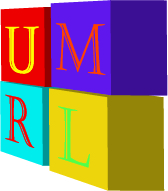 |
URMLUnified Requirements Modeling Language |
|
The URML project is about creating a modeling language for requirements elicitation, the Unified Requirements Modeling Language. It is a joint effort of Siemens Corporate Technology and the Chair for Applied Software Engineering.URML unifies concepts from goal-oriented, feature-oriented, process-oriented, and risk-oriented approaches and integrates them with the classical view of functional and nonfunctional requirements. That integration enables traceability between dangers, processes, goals, stakeholders, features, and requirements in a single model. |
|
| More information can be found on the project website. | |
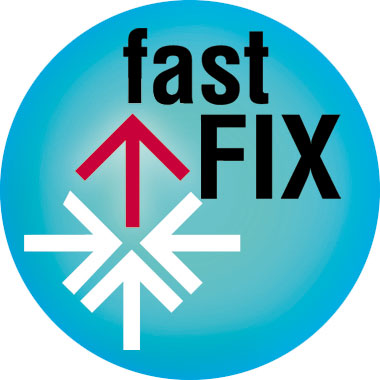 |
FastFixMonitoring Control for Remote Software Maintenance |
|
The overall goal of the FastFix project is to provide software developers with a mainte- nance environment that combines time efficiency with low cost and high precision. FastFix will develop a platform and a set of tools that will continuously monitor customer envi- ronments, while collecting information on application execution and user interaction. The overall objective is to identify symptoms of execution errors, performance degradation, or changes in user behaviour. By using correlation techniques, the platform will also support failure replication in order to identify incorrect execution patterns and, in particular cases, automatically generate and deploy remedial patches. |
|
| More information can be found on the project website. | |
 |
URESUsage- and Rationale-based Evolution Decision SupportDFG Projekt |
|
URES is a joint project of Universität Heidelberg (Prof. Paech) and Technische Universität München (Prof. Brügge) and it is part of the DFG Priority Programme SPP1593. For software evolution decisions developers need knowledge of the current and future deployment context as well as knowledge of the software and its development artifacts. Typically this knowledge is documented only partially and often only in unrelated fragments, and therefore it is not fully exploitable. In addition, the reasoning underlying the decisions made in previous releases can also change. Thus, it is an important challenge to ease the capture of this knowledge and to improve the decision process. The vision of the URES project is a continuous decision process over the whole software life-cycle. |
|
| More Information can be found on the project website. | |
 |
PUMBAProgram Understanding Munich Bremen AllianceDFG Projekt |
|
PUMBA ist ein Kooperationsprojekt zwischen der Universität Bremen und der Technischen Universität München. Die Gruppe für Angewandte Softwaretechnik an der Technischen Universität München und die AG Softwaretechnik der Universität Bremen forschen im Projekt PUMBA auf dem Gebiet des Programmverstehens. Das Ziel dieses Projekts ist es, mit Hilfe von empirischer Grundlagenforschung Erkenntnisse über den Verstehensprozess zu erlangen. Der Fokus liegt dabei auf den Einzelaktivitäten, die ein Programmierer durchführt wenn er ein bestehendes System warten muss. Die Ergebnisse werden uns helfen Werkzeuge und Methoden zu entwickeln, um Programmierer in ihrer täglichen Arbeit zu unterstützen. |
|
| Weitere Informationen befinden sich auf der Projekt Webseite. | |
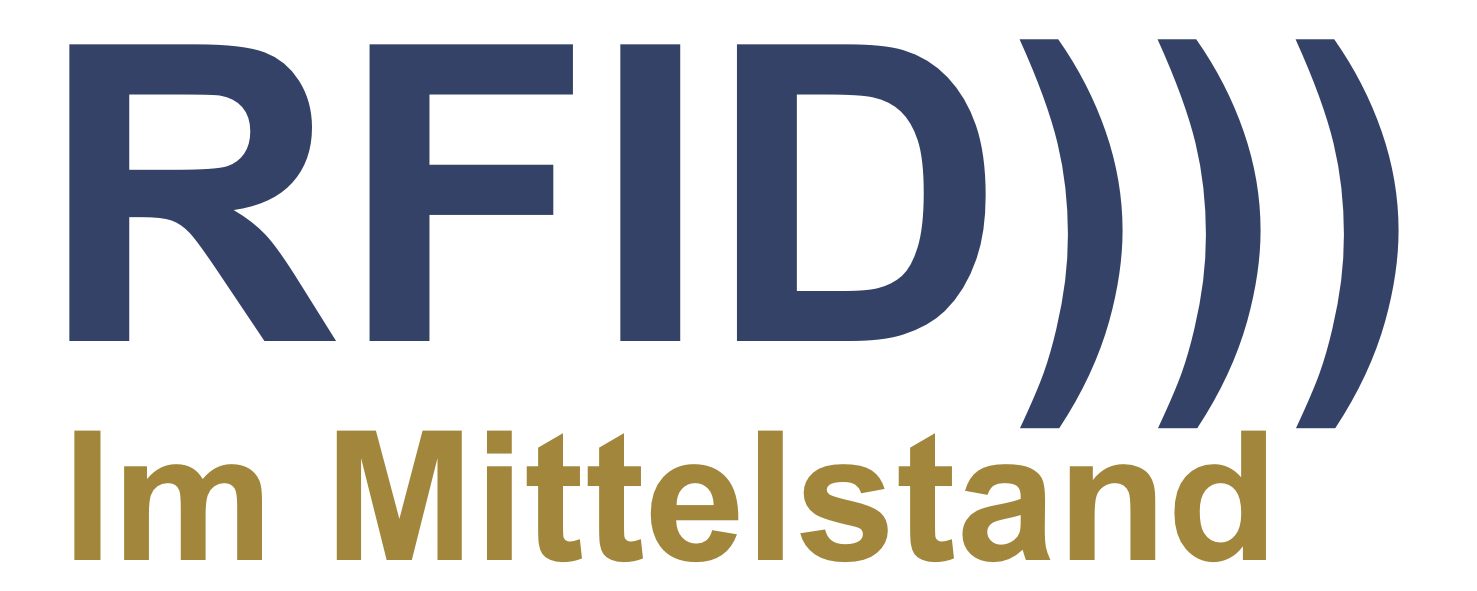 |
RFID im MittelstandIntelligenter RFID-ReaderDer Lehrstuhl für Angewandte Softwaretechnik koordiniert seine RFID-Aktivitäten im RFID-Anwenderzentrum München (RFID-AZM). |
|
Im Auftaktprojekt RFID im Mittelstandä werden durch die Erstellung von Vorgehensmodellen und Entscheidungshilfen, sowie die Entwicklung neuer adaptiver RFID-Hardware v.a. kleine und mittelständische Unternehmen in die Lage versetzt, die RFID-Technologie nutzbringend in eigene und Partnerprozesse zu integrieren. Durch die konsequente Vernetzung und interdisziplinäre Zusammenarbeit zwischen Forschung und Wirtschaft im Bereich RFID, soll ein wesentlicher Beitrag zur Sicherung und zum Ausbau von Wertschöpfung und Arbeitsplätzen am Standort Bayern und Deutschland geleistet werden. |
|
| More information can be found on the project website. | |
 |
PinocchioProbability-based Inference of Composition and Conducting behaviour of humans in interactive organizations In Zusammenarbeit mit dem Symphonieorchester des Bayerischen Rundfunks unter der Schirmherrschaft von Mariss Jansons. |
|
The goal of the Pinocchio project is to enable children to experience and develop an understanding for classical music in a playful manner by conducting a virtual orchestra. We are developing Pinocchio as a game for a living room environment as well as in a museum setting. The user is able to configure the orchestra. Each musician is associated with audio and video streams and can be freely located in 3D space. The orchestra adjusts to the tempo and volume according to the conductor's gestures. The long-term goal is the creation of a multi-modal, device independent framework for gesture-based applications which require motor skills or the control and operation of a complex set of sensors in intelligent house or car driver assistance systems. |
|
| More information can be found on the project website . | |
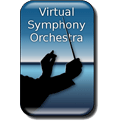 |
VSOVirtuelles Symphonieorchester |
|
(Watch Demo Movie) |
|
| More information can be found on the project website. | |
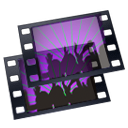 |
Software CinemaVideo-based Requirements Engineering |
|
Software Cinema is research in useful applications of video in software development. However, video alone is an inert medium which does not facilitate changing the message of finished movies. To alleviate this shortcoming, we propose a tool kit to create, edit, and modify digital media consisting of film enriched with software models. We call this Requirements Analysis Video (RAV). Our focus in the development life cycle is on requirements elicitation and analysis, since we expect the greatest benefits there. The rhetoric gap between end-users and developers is especially severe in those applications, and we are confident that RAV can serve to reduce misconceptions and misunderstandings. We think RAV is a viable alternative for capturing and transporting fuzzy information. |
|
| More information can be found on the project website. | |
 |
TeamWeaverKnowledge Sharing for Distributed Software Teams |
|
TeamWeaver aims to establish an efficient and seamless flow of information within development teams -- i.e. to minimize cost and effort to retrieve and share required information. Therefore it provides easy information access (SE-specific search engine and proactive recommendation), fosters need-driven information exchange among developers, allows to automatically capture developer activities within the IDE and provides lightweight annotation and knowledge acquisition tools. TeamWeaver is an Open Source platform with different interacting components. The TeamWeaver Backend is running on a Java Application Server or Servlet Container and can be accessd via web browser or by usage of the TeamWeaver Eclipse Client. |
|
| More information can be found on the project website . | |
 |
SimballoDomain independent intelligent adaptive learning environments |
|
The goal of this project is the development of an intelligent online-learning software. In particular Simballo should support the acquisition of literacy for children aged between 4 and 8. The aim of our research in this area is to discover synergies between behavioral analysis and software engineering through the realization of an intelligent learning framework. The research team for Simballo consists of psychologists as well as computer scientists. |
|
 |
TEAMTightening knowledge sharing in distributed software communities by applying semantic technologies |
|
The TEAM project addresses the need for a knowledge sharing environment with advanced capabilities suitable for the distributed engineering and management of software systems. The TEAM project aims to develop an open-source software system, seamlessly integrated in a software development environment for enabling decentralised, personalised and context-aware knowledge sharing. |
|
| More information can be found on the project website . | |
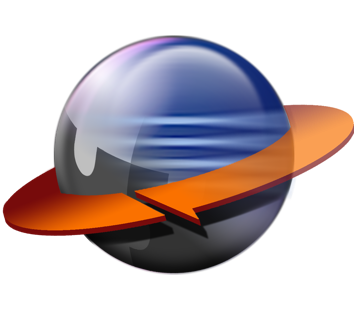 |
unicasea unified CASE-Tool |
|
unicase is a CASE-Tool integrating models from the different development acitivities, such as requirements, use cases, UML models, schedules, bug and feature models into a unified model. This unified model is highly traceable by design. The unicase client allows to view and edit these models in a textual, tabular and diagram visualization. The models are stored and versioned on a server comparable to svn but customized for models. Client and server are easily extensible for new models to support integrating models into the unified model. unicase is based on the Eclipse platform including EMF and GMF. It is open-source and released under under the Eclipse Public License v 1.0 (EPL). |
|
| More information can be found on the project website . | |
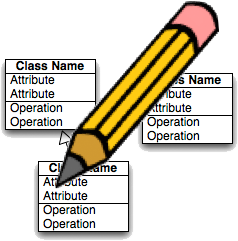 |
TABLETTablet Applications for Bidirectional Lectures in Electronic Teaching |
|
The TABLET project aims to improve introductory computer science classes by using the concept of Cognitive Apprenticeship, which has been shown to improve learning. We are developing and evaluating a set of tools and concepts, forming a software infrastructure that supports this vision for large lectures involving hundreds of students. The curriculum of the courses has been altered to include problem solving sessions. |
|
| More information can be found on the project website . | |
 |
ARENA |
|
ARENA is a distributed, multi-user system for organizing and conducting tournaments. ARENA is game independent in the sense that organizers can adapt a new game to the ARENA game interface, upload it to the ARENA server, and announce and conduct tournaments with players and spectators located anywhere on the Internet. Organizers can also define new tournament styles, describing how players are mapped to a set of matches and how to compute an overall ranking of players by adding up their victories and losses (and hence, figuring out who won the tournament). |
|
 |
Sysiphus |
|
The goal of Sysiphus is to support modeling and collaboration in global software projects. While global projects are becoming more common in software development, collaboration among sites remains difficult. Primary causes include differences in culture, lack of informal communication, and lack of awareness among sites. Sysiphus addresses these challenges by providing a uniform framework for representing system models, collaboration artifacts, and the overall project organization. By making this information explicit, participants can become aware of upcoming issues, contact more easily the relevant stakeholders, and resolve issues more quickly. By providing mechanisms to selectively notify potential recipients, participants save time and effort while avoiding an information overload. |
|
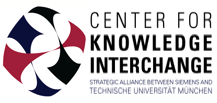 |
Decision Support Tool for IT-Security and Risk Management |
|
Today's system administrators have to react to security alerts based on intuition, previous experience, regulations, and sometimes on inflexible policies; moreover, currently there is no link to available defense reactions and related defense costs. The goal of this project is to support the role of the system administrator by automating his task through introducing the proposition of automation versus human intervention. |
|
 |
IT Network Management Tool for IT Services |
|
This project was initiated in coordination with the project "Decision Support Tool for IT-Security and Risk Management". One of the major assumptions of the "Decision Support Tool for IT-Security and Risk Management" is the existence of a white-box IT infrastructure which maps the IT-resources to one another. This allows, in an attack incident, the ability to trace the complete transitive closure of the IT-resources affected and thus build the potential attack tree. |
|
 |
MedusaMedical Distributed Ubiquitous Service Applications |
|
Medusa is a framework for the secure sharing of digital information in a natural and flexible way, following well established work processes. Topic maps are used as a generic data model to organize and exchange domain knowledge. The framework packages information in a way so that it can be delivered securely, for communication and data exchange it implements a peer- to-peer approach.Scenarios in the area of public health care were analyzed to evaluate the benefit of the framework. A prototype application based on the proposed framework was developed that handles semantically enriched and restricted medical information of patients and manages fine grained access for physicians. |
|
| More information can be found on the project website . | |
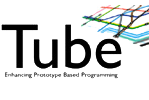 |
TubeGraph Based Programming |
|
A protoypical implementation of a graph-based programming language based on python with a prototypical IDE for Mac OS X. |
|
| More information can be found on the project website . | |
 |
Cargo & Logistic |
|
In this lab course a distributed, interactive logistic tool was developed, the focus lies upon the visualization of freight flow and stocking information where visionary and modern visualization and user-interaction concepts are implemented experimentally. |
|
 |
STARSPraktikum Augmented Reality |
|
"Erweiterte Realität" (Augmented Reality, AR) ist eine neue Technologie, mit der Benutzern Computerinformationen in einer halb-transparenten Datenbrille (HMD) drei-dimensional in ihr Sichtfeld eingeblendet werden, so dass der Eindruck entsteht, diese virtuellen Objekt existierten innerhalb der realen Umwelt. Wenn ein Benutzer sich in seiner Umwelt bewegt, bleiben die virtuellen Objekte an "ihrem Platz"; man kann sie sich also von allen Seiten ansehen und sie wie die realen Objekte manipulieren. Eine typische Problemstellung bei der Wartung großer Industrieanlagen besteht darin, daä man sich mit möglichst großer Geschwindigkeit und Zuverlässigkeit in neuen Umgebungen zurechtfinden muä und unter vielen sehr ähnlich aussehenden Maschinenteilen |
|
| More information can be found on the project website . | |
 |
TRAMPTraveling Repair and Maintenance Platform |
|
The TRAMP system (Traveling Repair and Maintenance Platform) was developed in a Praktikum with 50 student participants. The realized scenario was to guide a mechanic who is equipped with a wearable computer to a customer who has a car breakdown. The mechanic is also instructed by the system on the actual repair process to fix the car. |
|
| More information can be found on the project website . | |
 |
Pathfinder |
|
This was the first demonstration system for the DWARF framework. It shows Yet-Another-Campus-Navigation scenario but stays here for sentimental historic reasons (since it shows the old location of the computer science department in the heart of munich). |
|
| More information can be found on the project website . | |
 |
Awareness BuilderABX |
|
Awareness Builder (ABX) is a system that will enable the participants of distributed software development projects to monitor the activities of others over a wide range of artifacts (e.g., system artifacts, organizational charts, or rationale models). Participants can subscribe to be notified when specific system artifacts are modified, when specific participants trigger an activity, or when participants trigger activities related to specific issues. Relationships among the system, organizational, and rationale models are then used to provide observers a context to interpret the activities of others. By providing context in terms of issues (as opposed to only system or communication artifacts), we hope to disseminate richer and more targeted awareness information, hence creating more opportunities for informal information exchanges and for distributed collaboration. |
|
| More information can be found on the project website. | |
 |
DaidalosBy order of the German National Merit Foundation (Studienstiftung des deutschen Volkes). |
|
The Daidalos project defined and implemented an intranet for the German National Merit Foundation (Studienstiftung des deutschen Volkes). The project created new ways and enhanced existing of communication between scholars (former and current) and the foundation itself. Project management for this project was quite a challenge since almost all members of the project were spread over Germany and worked voluntarily. |
|
 |
PAID |
|
The goal of this project was to develop a software solution for deploying frequently updated technical specifications and information about vehicle maintenance to car dealers. Traditional methods, such as delivering paper-based or CD-based documents, are slow and costly. The project is based on a selective, adaptive multicast protocol and builds on advanced technologies such as data mining, statistical modeling, and mobile computing. |
|
| More information can be found on the project website . | |
 |
OWL |
|
The goal of this project was to develop the infrastructure for intelligent buildings. All objects in a house, from the elevators and locks down to single light bulbs, are equipped with sensors and actuators that allow to detect failures and malfunctions. |
|
 |
JAMES |
|
The goal of this project is to develop services and applications related to smart cards and cars. Examples are the automatic reservation of parking lots via mobile phones, the remote diagnosis of car failures, and the realization of frequent driver incentive schemes. Some of these applications also benefit from satellite navigation systems, for example, to guide the driver to its reserved parking lot. |
|
| More information can be found on the project website. | |
 |
Jewel |
|
The goal of this project was to measure and simulate the spread of air pollutants with respect to a model of the environment. |
|
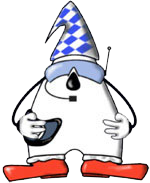 |
DWARFAugmented Reality Framework |
|
DWARF is a CORBA based framework that allows the rapid prototyping of distributed Augmented Reality applications. Augmented Reality is a new way for humans and computers to interact: real-world scenes are augmented with virtual objects. DWARF is a Framework for the development of such systems: a collection of intelligent modules that can be combined flexibly depending on the needs of the desired application. |
|
| More information can be found on the project website . | |
 |
ARENA |
| More information can be found on the project website. | |
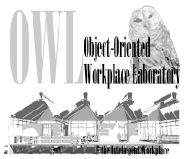 |
OWLObject-Oriented Workplace Laboratory |
| More information can be found on the project website. | |
ABXAwareness Builder |
|
| More information can be found on the project website. | |
 |
PAIDPlatform for Active Information Dissemination |
| More information can be found on the project website. | |
 |
STARSSticky Technology for Augmented Reality Systems |
| More information can be found on the project website. | |
 |
TRAMPTraveling Repair and Maintenance Platform |
| More information can be found on the project website. | |
iBistroSupporting Informal Meetings |
|
| More information can be found on the project website. | |
 |
REQuestIntegrating use case specification and rationale capture |
| More information can be found on the project website. | |
 |
SE2008Software-Engineering-Konferenz 2008 |
| More information can be found on the project website. | |
 |
NBUNotebook University |
| More information can be found on the project website. | |
